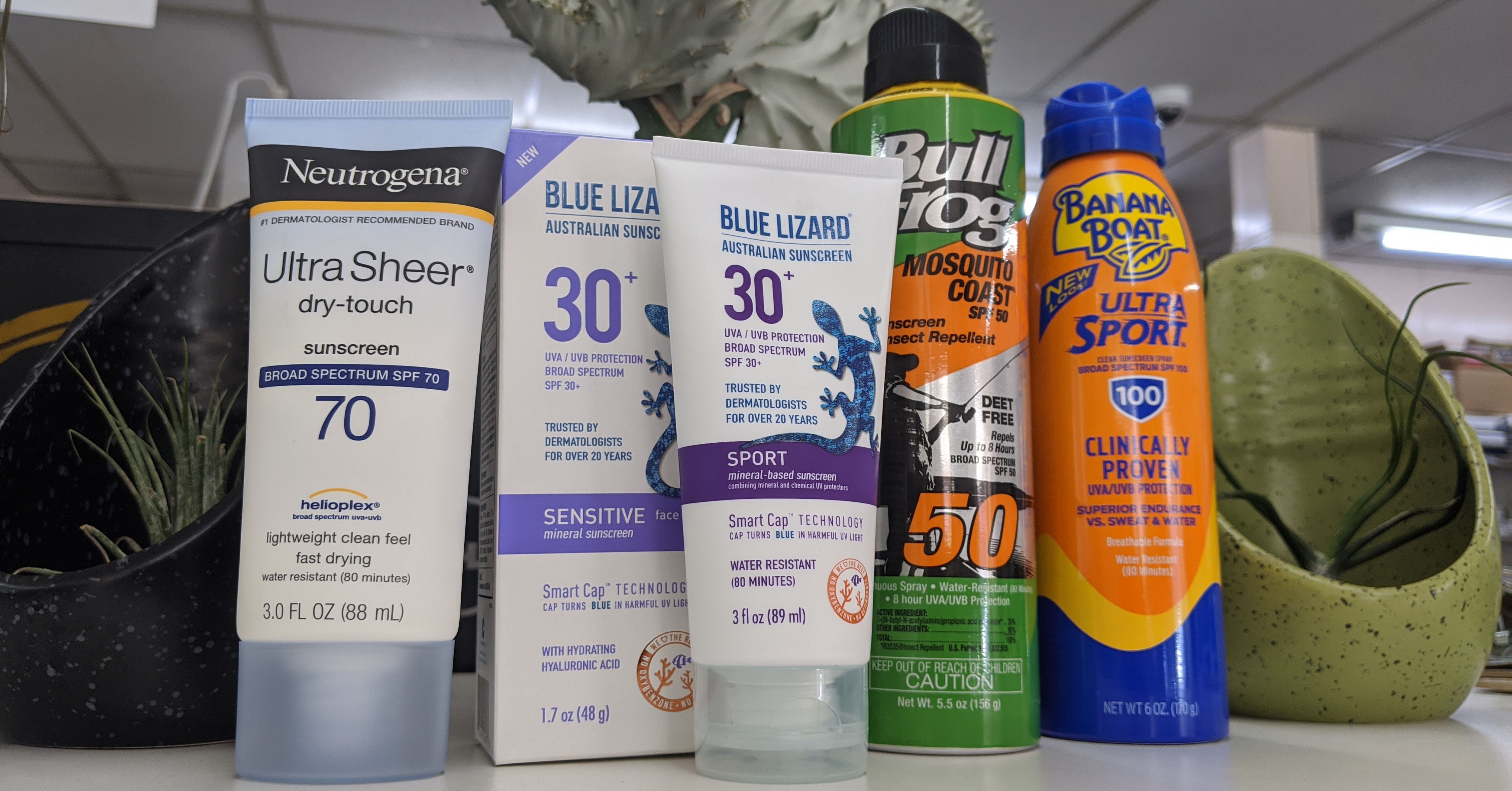Millions of people are treated for skin cancer every year and out of those thousands die. Most skin cancer is due to exposure to solar and artificial ultra violet (UV) radiation. In addition to skin cancer, many, many people more commonly put up with painful and even debilitating sunburn on a routine basis.
Sunscreens can help prevent skin cancers and sunburn when used properly. The problem is that even the most diligent people do not always use sunscreens properly.
The following tips will help you get the most protection from your sunscreen:
- Use a sunscreen with a sun protection factor (SPF) of at least 15 or 30. In general, the higher the SPF, the better the protection against sunburn. SPF 15 products block 93% of UV rays, SPF 30 product block 97% of UV rays, SPF 50 products block 98% of UV rays. So, anything above SPF 50 really provides negligible additional sunburn protection. Apply sunscreen every morning to face, neck and hands and apply 15 to 30 minutes prior to sun exposure. When in the sun reapply sunscreen every 2 hours. This is very important to remember. Sunscreen should be applied liberally. This translates into about 1 to 1 and ½ ounces (or a handful) for each person per full body application.
- Avoid being in the sun when its rays are the strongest, especially between 10am and 2pm daily.
- Pick a sunscreen that suits you best but make sure it is broad spectrum which means it blocks UVA and UVB rays. Sunscreens are available as creams, gels, sprays, oils, sticks and pastes. Creams and oils are great for dry skin, gels work well for hairy areas, pastes are good for the face, sticks work well around the eyes. Applying sprays directly to arms and legs is fine but make sure to rub it in and when using a spray on the face make sure to spray the sunscreen into the hands then rub onto the face. Be careful using aerosols around open flames.
- There is no such thing as a “waterproof” sunscreen. Only “water resistant”. To get the designation of being water resistant, the product must remain effective for 40 or 80 minutes while someone is swimming or sweating a lot.
- Using sunscreen in infants is tricky. Many healthcare providers do not recommend the use of sunscreen in infants under 6 months of age. The standard recommendation is to keep infants out of direct sunlight and dress them in tightly woven clothing to block the UV rays. However, if sunlight cannot be avoided small amounts of sunscreen with an SPF of 15 or higher may be used.
- Don’t use oral “sunscreens” (Heliocare, SunPill). The FDA has issued repeated warnings that these dietary supplements DO NOT protect people from sunburn and skin cancer.
- Discard sunscreens if they have reached their expiration date OR if the product has been exposed to high temperatures (such as the dash of a car).


